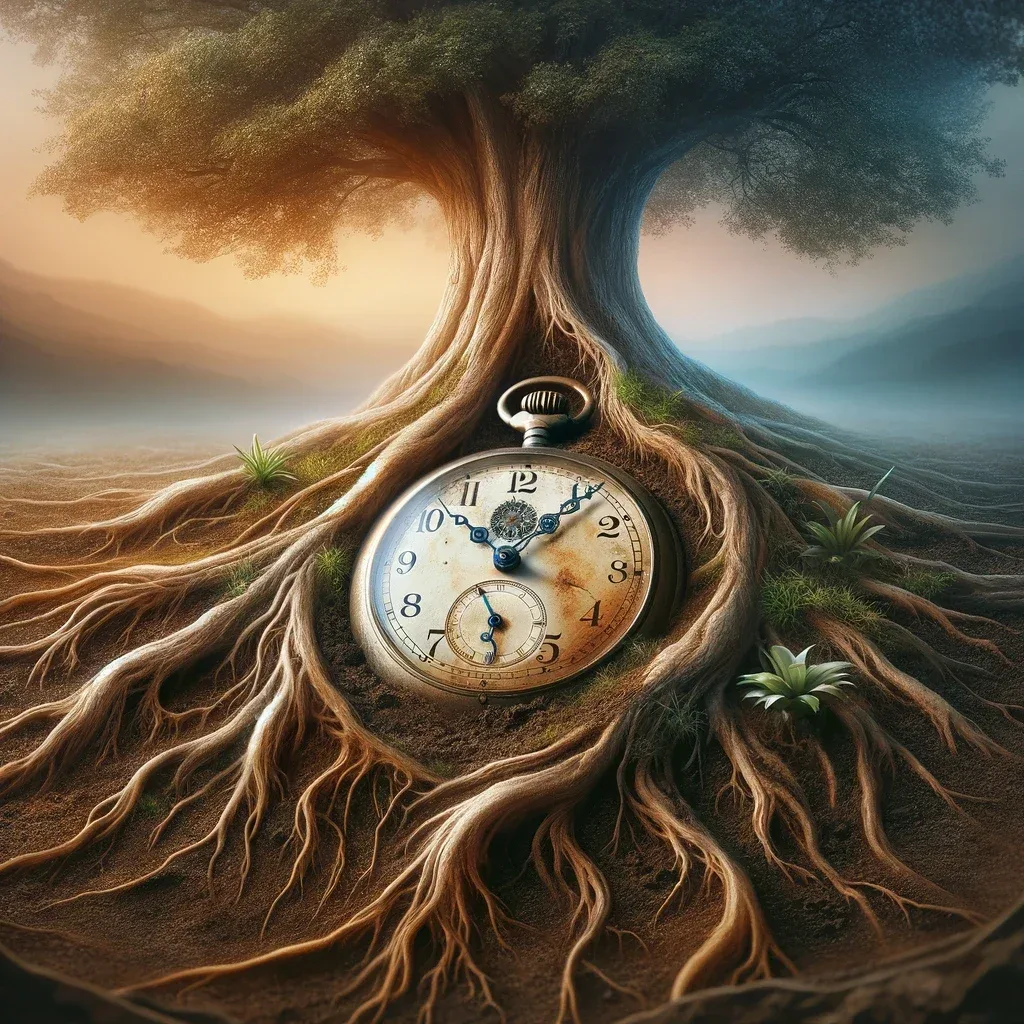The relationship we have with time is the most democratic and, simultaneously, the most challenging of all. Seneca's quote, “Nothing, Lucilius, is ours but time”, taken from his moral letters to Lucilius, serves as a reminder of the ephemerality of our existence and the importance of valuing each moment we live.

The Stoic View of Time
Time, for the Stoics, is one of the few things we truly possess, but it is also one of the most difficult assets to manage. The Stoics, like Seneca, believed that while we cannot control the length of our life, we can control its depth and richness. Life should not be measured by time, but by how that time is used.
Enjoying Every Moment
Seneca argued that wasting time is a serious mistake, because while other resources, such as money, can be recovered, lost time is irretrievable. He encouraged Lucílio – and, by extension, all of us – to live fully and consciously, investing time in activities that enrich the soul and contribute to personal and collective well-being.
Temporality and Virtue
For the Stoics, virtue is the greatest and most lasting good. Time should be spent in pursuit of virtue and self-improvement, a continuous process of learning and growth that enables us to face life's adversities with courage and resilience.

Time Management in Modern Life
In the modern world, where technology and a culture of immediacy often seem to speed up time, Seneca's message is more relevant than ever. Managing time efficiently is an essential skill, and Stoic philosophy offers timeless principles that can help us prioritize tasks and commitments, aligning them with our values and life goals.
Principles for Wise Use of Time
Stoicism proposes that we should focus on what is essential, avoiding distractions and superficialities. Mindfulness and focus are key to ensuring that every action we take is intentional and meaningful.
Technology and the Perception of Time
While technology offers tools to better manage time, it can also be a source of constant distraction. It is important to create strategies to use technology so that it helps us maximize our time, instead of wasting it.
Time and the Search for Happiness
The search for happiness is a continuous journey, and the use we make of our time is directly proportional to the quality of our life experience. Time well spent can lead to a fuller, more satisfying life, while time wasted can result in regret and dissatisfaction.

The Relationship Between Time and Contentment
Contentment, according to the Stoics, comes from accepting the passage of time and appreciating the present. Finding satisfaction today is a way of honoring the time we have.
The Challenge of Living in the Now
Living in the now is a challenge in an era that constantly values the future and the accumulation of experiences. Stoicism teaches us that the quality of our attention to the present is what truly enriches our lives.
Time and Legacy: What We Leave Behind
Our legacy is not determined by the length of our lives, but by the impact we have during the time we live. It is important to reflect on how we want to be remembered and what we want to leave for future generations.
Building a Legacy of Virtue
Stoic philosophy encourages us to build a legacy based on virtues and meaningful actions that can inspire and benefit others long after we are gone.
The Impact of Our Actions on Time
Every action we take has the potential to resonate over time, influencing not only our lives, but those of others as well. It is crucial to be aware of the long-term consequences of our choices.
Conclusion: Time As Our Most Precious Asset
This article has detailed how the Stoic understanding of time can be applied to improve the quality of our lives and relationships. Seneca's view of time as our only true possession challenges us to live more intentionally and seek a legacy that transcends our physical existence. By embracing ephemerality and applying Stoic principles to our use of time, we can aspire to a life of purpose and meaning.
FAQ on “Nothing is Ours Except Time: Understanding the Ephemerality of Existence”
In this FAQ, we explore common questions that arise when reflecting on the transitory nature of time and our relationship to it, especially in light of Stoic teachings. These answers seek to clarify doubts and provide a deeper understanding of how we can live more fully, following the wisdom of Seneca and other Stoics.

1. What did Seneca mean by “Nothing is ours but time”?
Seneca, in his Letter 1 to Lucilius, expresses the idea that time is the only truly our asset, a possession that, despite being fleeting and uncontrollable, is completely at our disposal. He emphasizes that we must value and use our time wisely as it is the only resource we cannot recover once lost.
2. How can I apply Stoic time use principles to modern life?
In today's era where we are bombarded by distractions, applying Stoic principles means prioritizing actions and activities that are aligned with our values and goals. This involves focusing on what is essential, avoiding procrastination and practicing mindfulness to live each moment intentionally.
3. What is the relationship between time and happiness in Stoic philosophy?
The Stoics believed that happiness is the result of living in accordance with nature and reason, which includes making wise use of time. They argued that true happiness comes from the practice of virtues and not from time spent searching for ephemeral pleasures.
4. How does technology affect our perception of time?
Technology can distort our perception of time by keeping us constantly connected and often overloaded with information and stimuli. The Stoics would advise us to use technology with intention and purpose, ensuring that it serves our life goals rather than distracting us from them.
5. In what ways can I become more mindful of the present?
Mindfulness, a practice aligned with Stoic principles, involves being fully engaged with the current moment. This can be achieved through meditation, breathing exercises, or simply slowing down and observing our thoughts and actions consciously.
6. How does the concept of legacy fit into the Stoic perspective of time?
For the Stoics, the legacy is not in the length of life, but in the value and virtue of the actions carried out. They encouraged living in such a way that our time on Earth would leave a positive mark, influencing society and future generations in significant ways.
7. Is it possible to manage time without falling into the trap of incessant productivity?
Yes, the Stoics would advise balance. They did not see time as something to be “filled” with constant activities, but as a space for meaningful action and contemplation. It is possible to be productive without overloading yourself, finding time for rest and reflection.
8. What does it mean to live a full life according to Seneca?
For Seneca, living fully means using each moment wisely, seeking personal growth, practicing virtue and contributing to the well-being of others. It's not about filling your life with activities, but about ensuring that the activities you choose are meaningful.
9. How can I begin to apply Stoic teachings about time in my daily life?
Start by reflecting on your priorities and values. Evaluate how you are currently spending your time and adjust your focus to activities that promote personal growth and well-being. Practicing daily reflection and reviewing actions can be a good starting point.
10. Did the Stoics believe in the immortality of the soul? How does this influence the perception of time?
Although there were different interpretations among the Stoics regarding the immortality of the soul, the general emphasis was on living the present life well. The perception of time, therefore, is focused on the present and the way we live now, which can have an eternal impact, regardless of the existence of the soul after death.






